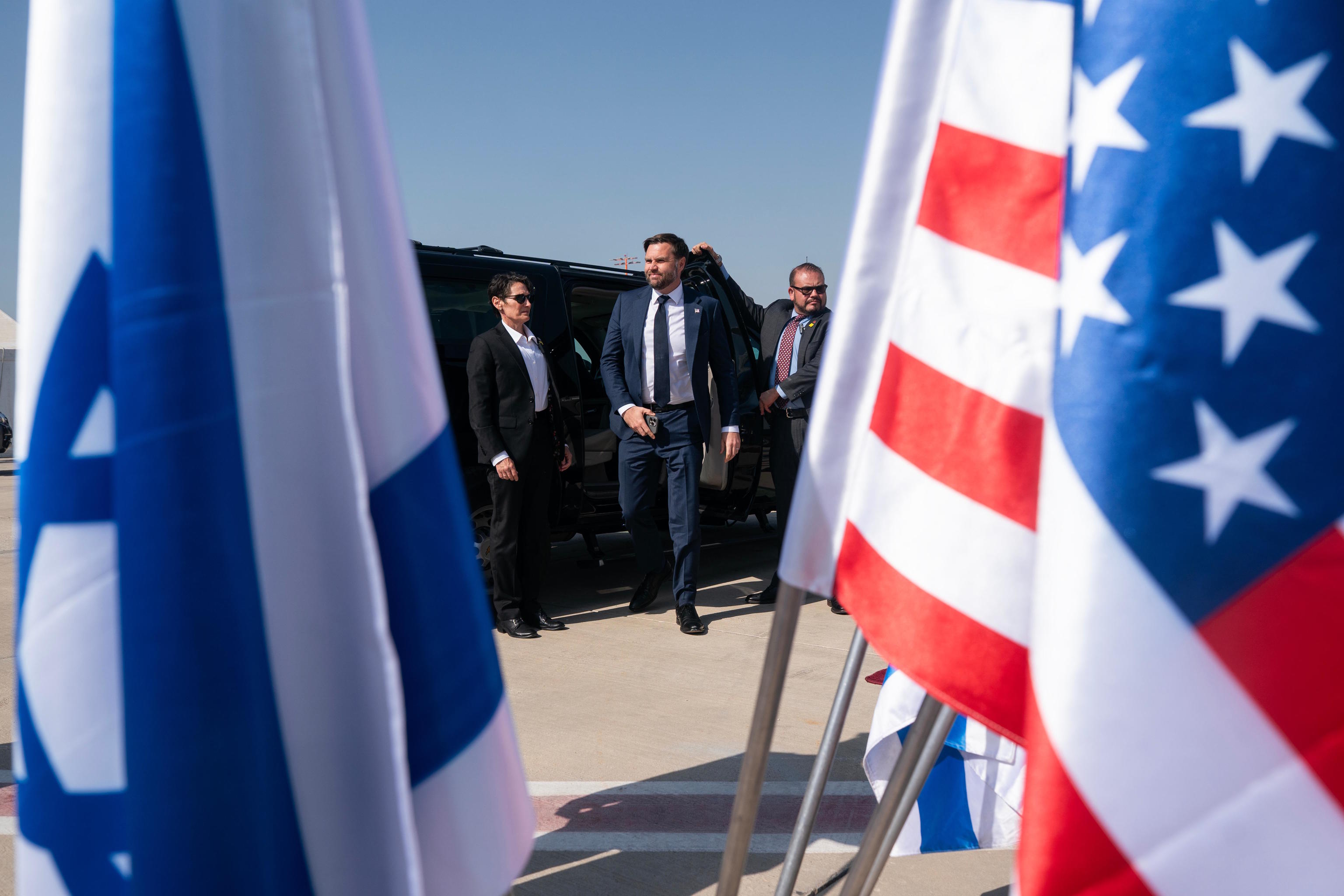In the last 24 hours, the United States has significantly hardened its tone, warning Israel and its Prime Minister Benjamin Netanyahu that they will not allow annexation of the West Bank and that bringing the issue to Parliament during official visits by high-ranking American officials is "an insult" and "stupid." Donald Trump has been saying this for weeks, at least since the UN General Assembly, after meeting with numerous Arab and Western leaders. But now his team on the ground has reiterated this, criticizing the country's political rhetoric and the recent votes in the Knesset, the national Parliament.
The toughest stance has undoubtedly come from American Vice President J.D. Vance, who has been visiting Israel for several days. Commenting on a bill proposing to apply Israeli law to the West Bank, a measure equivalent in many ways to annexation, which received preliminary approval from Israeli lawmakers on Wednesday, Vance stated that the details "are strange, very confusing to me. I asked to be explained what it was about, and they told me it was something like a symbolic vote, a symbolic gesture on the annexation of the West Bank. Someone told me it was like a political ploy, a publicity stunt, with no practical significance and purely symbolic. But if it's a political ploy, it's a very stupid one, and I feel insulted. The West Bank will not be annexed by Israel, that is the policy of our administration. If they want to have symbolic votes, go ahead, but we are not pleased," he warned.
The Vice President's words are part of the not-so-subtle power struggle between the two sides. Netanyahu constantly boasts of the unique relationship he has with Trump, but at the same time, he is facing criticism as more voices describe their relationship as "vassalage." Vance himself had to respond to several questions about this, dismissing any notion of Israel becoming a protectorate, with Washington making decisions. But at the same time, he clearly outlined what the White House considers acceptable or not.
"It will not happen. It will not happen because I gave my word to the Arab countries. And they cannot do it now. We have had great Arab support. Israel would lose all U.S. support if that were to happen," the President said in an interview published today in Time when asked about the possibility of annexation.
Trump does not trust Netanyahu and is showing it. They are friends; he has met with him four times at the White House this year, and he himself recently visited the Knesset, but he does not trust that he or his government will respect what was agreed upon to end the war in Gaza. That's why he has literally surrounded him with his carabinas. In recent weeks, the President's son-in-law, Jared Kushner, and his special envoy for these issues, Steve Witkoff, have been on the ground constantly. When they returned home, Vance took over. And when he embarked on his return to Washington, he handed over to Secretary of State, Marco Rubio. Clearly aiming to avoid surprises. That's why the Israeli Parliament's vote is seen as a challenge, a provocation, "an insult."
On Wednesday night, from Andrews Air Force Base just before boarding for Israel, Rubio also commented on the internal political debate and the pressures from Netanyahu's coalition, warning that the U.S. does not view it favorably and that the pressure on the West Bank and threats to the territories pose "a threat to the peace agreement" signed with Hamas regarding Gaza. "The President has made it clear that this is something we do not support," he said at the foot of the plane.
Earlier this week, Vance announced the opening of a military-civil coordination center in southern Israel, where about 200 U.S. soldiers will work alongside the Israeli army and delegations from other countries to plan the reconstruction of Gaza and ensure that the ceasefire is maintained. Rubio confirmed before departing that he will visit the facilities and appoint an official to work alongside the top U.S. military official in the Middle East, Vice Admiral Brad Cooper.
